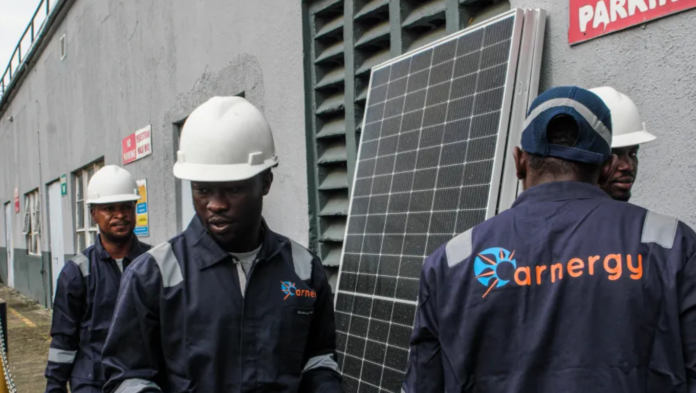Solar energy demand is booming in Nigeria, and cleantech startup Arnergy is right in the thick of it. Backed by Bill Gates’s Breakthrough Energy Ventures, Arnergy just raised $18 million in Series B funding to ramp up solar adoption across the country where unreliable grid power and skyrocketing fuel prices have made alternative energy more attractive than ever.
This new round includes a $15 million Series B extension added to a $3 million B1 raised last year. Leading the charge is Nigerian private equity firm CardinalStone Capital Advisers (CCA), alongside earlier supporters like Breakthrough Energy Ventures, British International Investment, Norfund, EDFI MC, and All On.
Founded in 2013 by Femi Adeyemo, Arnergy was initially positioned as a solution for uninterrupted power in a country where blackouts are routine. But as fuel subsidies were scrapped in May 2023 causing petrol prices to spike nearly 500% the company’s pitch evolved. Now, Arnergy sells solar not just as a reliable energy source, but as a smart financial choice.
“When we started the business, solar was about getting steady electricity. Saving money wasn’t really part of the conversation,” Adeyemo said. “Now it is. We can clearly show customers how much they’re saving each month whether they were using petrol, diesel, or even relying on the grid.”
Arnergy serves a broad swath of the economy, with customers in hospitality, education, agriculture, finance, and healthcare. The biggest shift lately? More people are opting for its lease-to-own model, especially as traditional power sources become less affordable.
In 2023, most customers were still buying solar systems outright. But that’s changing fast. The company’s Z Lite lease-to-own plan, which lets users pay fixed monthly fees over 5 to 10 years before owning the system, has exploded in popularity. With diesel prices and electricity tariffs soaring, long-term leases now look like a smarter deal.
Imagine paying ₦200,000 ($125) monthly for power Arnergy can slash that to ₦96,000 ($60). “Over five years, the savings speak for themselves,” Adeyemo explained. In fact, many existing customers are coming back to double their solar capacity or go fully off-grid.
As a result, Arnergy tripled its lease customer base in a year and expects to grow it by up to five times more in 2025. Revenue in local currency is soaring too, and while dollar earnings are flat due to currency devaluation, the company is eyeing international expansion and B2B2C deals that could bring in more FX income.
So far, Arnergy has deployed over 1,800 solar systems in 35 states across Nigeria. Combined, that’s 9 megawatts of solar power and 23 megawatt-hours of battery storage no small feat in a market that still heavily relies on noisy, polluting generators.
Now, with fresh capital in hand, the company plans to install 12,000 more systems by 2029. That’ll require a shift in strategy: Arnergy is moving beyond direct sales and expanding its footprint through partnerships with businesses and physical retail outlets outside of Lagos. It’s also in talks with banks and development finance institutions (DFIs) to secure local debt that will fund its energy-as-a-service (EaaS) offerings for multinationals.
In a bid to boost local manufacturing, authorities are considering a ban on imported solar panels. The intention is to grow domestic capacity but Adeyemo says it’s too soon. He believes a sudden ban could paralyze an industry that’s only just gaining traction.
“We support local manufacturing. But shutting the door before the factories are ready? That could be a major setback,” he warned. For him, the focus should be on creating a supportive environment think stable policies, capital access, and infrastructure so local manufacturers can scale up over the next three to five years. Only after that should restrictions on imports be considered.
As Nigeria confronts its energy crisis head-on, Arnergy is proving that cleantech can do more than keep the lights on. It can drive real economic transformation, giving individuals and businesses control over their power and their spending. With its blend of innovation, strategic partnerships, and mission-driven leadership, Arnergy is on track to play a major role in shaping the future of African energy.












